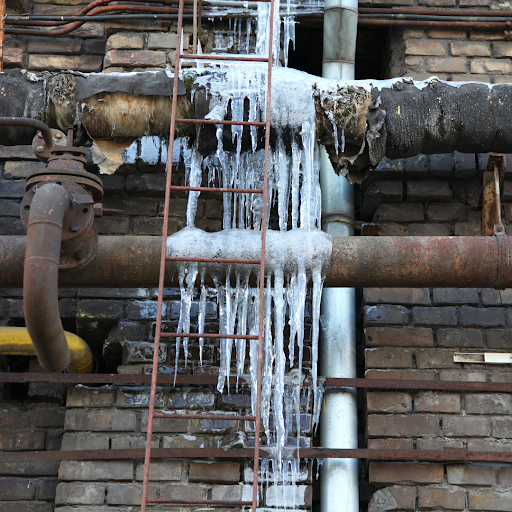Preventing Frozen Plumbing: Effective Strategies for Cold Weather
Preventing Frozen Plumbing: Effective Strategies for Cold Weather
Blog Article
What are your opinions about How to prepare your home plumbing for winter weather?

Cold weather can damage your pipes, specifically by freezing pipelines. Here's exactly how to avoid it from occurring and what to do if it does.
Introduction
As temperatures decrease, the danger of icy pipelines rises, possibly resulting in expensive fixings and water damages. Understanding how to avoid icy pipelines is vital for home owners in cool environments.
Avoidance Tips
Protecting prone pipes
Cover pipelines in insulation sleeves or use warmth tape to secure them from freezing temperatures. Concentrate on pipes in unheated or exterior locations of the home.
Heating techniques
Maintain indoor spaces sufficiently heated, particularly areas with pipes. Open up cabinet doors to enable warm air to distribute around pipes under sinks.
Exactly how to identify icy pipelines
Seek reduced water circulation from faucets, uncommon smells or noises from pipelines, and noticeable frost on exposed pipelines.
Long-Term Solutions
Architectural changes
Think about rerouting pipes far from outside walls or unheated areas. Add added insulation to attics, basements, and crawl spaces.
Updating insulation
Invest in high-grade insulation for pipelines, attics, and walls. Appropriate insulation aids keep regular temperature levels and reduces the risk of icy pipelines.
Securing Outside Plumbing
Yard pipes and outside taps
Separate and drain yard hose pipes before winter. Mount frost-proof spigots or cover outdoor taps with protected caps.
Understanding Icy Pipelines
What triggers pipes to ice up?
Pipes ice up when subjected to temperatures listed below 32 ° F (0 ° C) for extended periods. As water inside the pipelines ices up, it broadens, putting pressure on the pipe wall surfaces and potentially creating them to break.
Threats and problems
Frozen pipes can bring about water system disturbances, home damages, and pricey repairs. Burst pipelines can flooding homes and create extensive structural damage.
Indications of Frozen Water Lines
Determining frozen pipes early can prevent them from bursting.
What to Do If Your Pipes Freeze
Immediate actions to take
If you think frozen pipelines, maintain taps available to eliminate pressure as the ice thaws. Utilize a hairdryer or towels soaked in warm water to thaw pipes gradually.
Final thought
Preventing icy pipes requires proactive measures and fast reactions. By understanding the reasons, indications, and safety nets, house owners can secure their plumbing throughout cold weather.
Helpful Tips to Prevent Frozen Pipes this Winter
UNDERSTANDING THE BASICS: WHY PIPES FREEZE AND WHY IT’S A PROBLEM
Water freezing inside pipes is common during the winter months, but understanding why pipes freeze, and the potential problems it can cause is crucial in preventing such incidents. This section will delve into the basics of why pipes freeze and the associated problems that may arise.
THE SCIENCE BEHIND FROZEN PIPES
When water reaches freezing temperatures, it undergoes a physical transformation and solidifies into ice. This expansion of water as it freezes is the primary reason pipes can burst. As the water inside the pipe freezes, it expands, creating immense pressure on the walls. If the pressure becomes too great, the pipe can crack or rupture, leading to leaks and water damage.
FACTORS THAT CONTRIBUTE TO PIPE FREEZING
Low Temperatures: Extremely cold weather, especially below freezing, increases the risk of pipes freezing. Uninsulated or Poorly Insulated Pipes: Pipes located in unheated areas, such as basements, crawl spaces, or attics, are more prone to freezing. Insufficient insulation or lack of insulation altogether exacerbates the problem. Exterior Wall Exposure: Pipes running along exterior walls are susceptible to freezing as they encounter colder temperatures outside. Lack of Heating or Temperature Regulation: Inadequate heating or inconsistent temperature control in your home can contribute to frozen pipes. PROBLEMS CAUSED BY FROZEN PIPES
- Pipe Bursting: As mentioned earlier, the expansion of water as it freezes can cause pipes to burst, resulting in significant water damage.
- Water Damage: When pipes burst, it can lead to flooding and water damage to your property, including walls, ceilings, flooring, and personal belongings.
- Structural Damage: Prolonged exposure to water from burst pipes can compromise the structural integrity of your home, leading to costly repairs.
- Mold and Mildew Growth: Excess moisture from water damage can create a favorable environment for mold and mildew growth, posing health risks to occupants.
- Disrupted Water Supply: Frozen pipes can also result in a complete or partial loss of water supply until the issue is resolved.
WHY CERTAIN PIPES ARE MORE PRONE TO FREEZING
- Location: Pipes located in unheated or poorly insulated areas, such as basements, crawl spaces, attics, or exterior walls, are at higher risk of freezing.
- Exterior Pipes: Outdoor pipes, such as those used for irrigation or exposed plumbing, are particularly vulnerable to freezing as they are directly exposed to the elements.
- Supply Lines: Pipes that carry water from the main water supply into your home, including the main water line, are critical to protect as freezing in these lines can affect your entire plumbing system.
- Underground Pipes: Pipes buried underground, such as those connected to sprinkler systems or outdoor faucets, can be susceptible to freezing if not properly insulated.
https://busybusy.com/blog/helpful-tips-to-prevent-frozen-pipes-this-winter/

Hopefully you enjoyed our article about How To Avoid Freezing Pipes. Thanks a lot for spending some time to read our content. I beg you pause to promote this write-up if you enjoyed reading it. I appreciate reading our article about How to prepare your home plumbing for winter weather.
Schedule Service Report this page